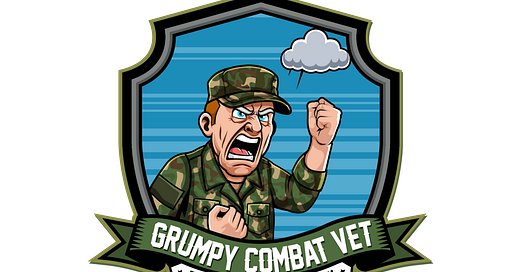Howdy,
Another episode of Shoulder to Shoulder dropped. If you love the troops—and you better love the troops!—please go check it out.
Let’s talk about Afghanistan (shocker, I know). Someday, inshallah, I won’t feel the burning desire to write about this every other day. But, alas, it was one of America’s longest wars, and although we’re doing our best …
Keep reading with a 7-day free trial
Subscribe to Grumpy Combat Veteran to keep reading this post and get 7 days of free access to the full post archives.


